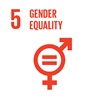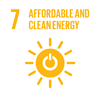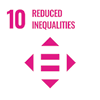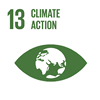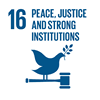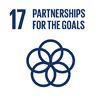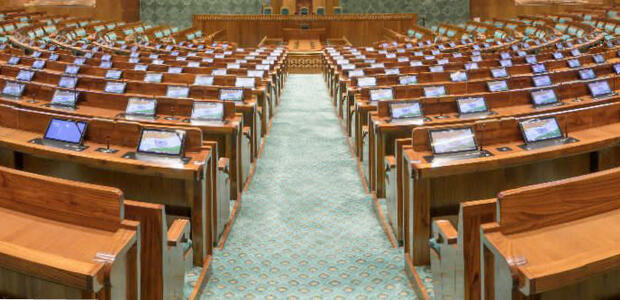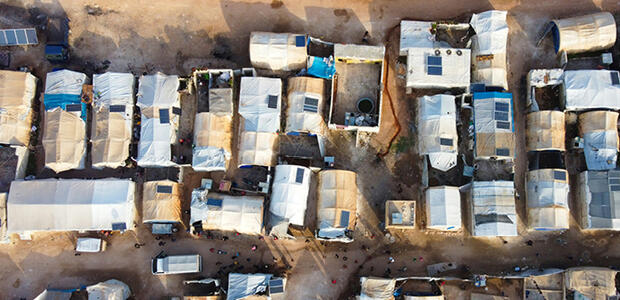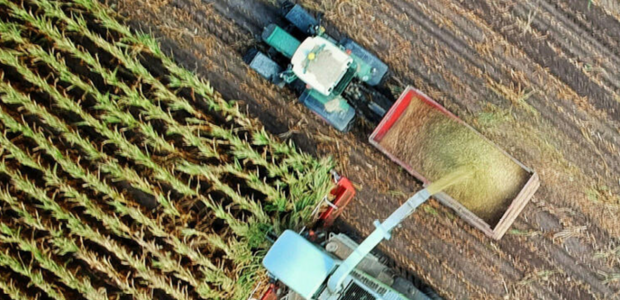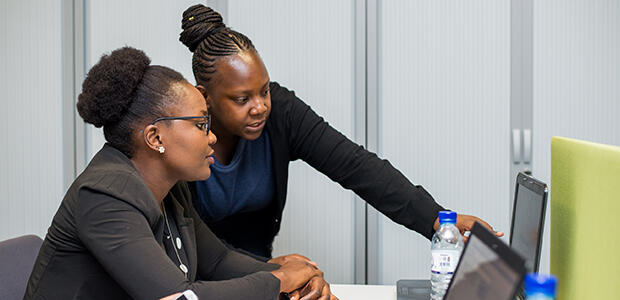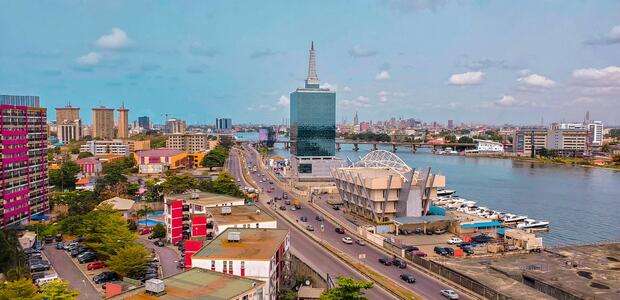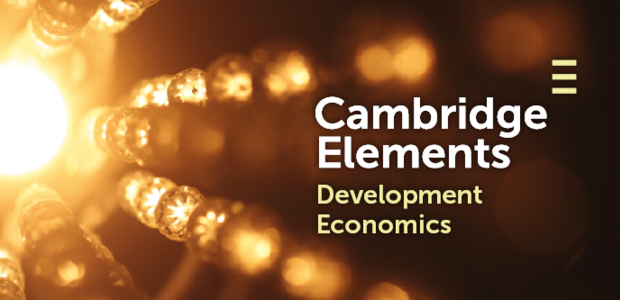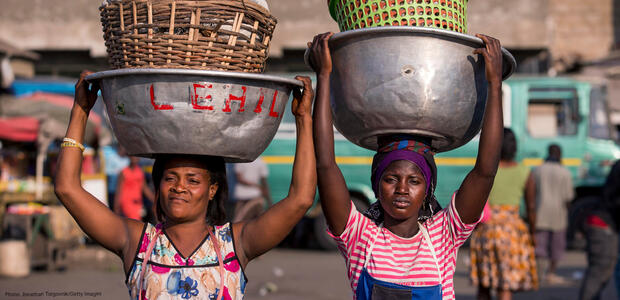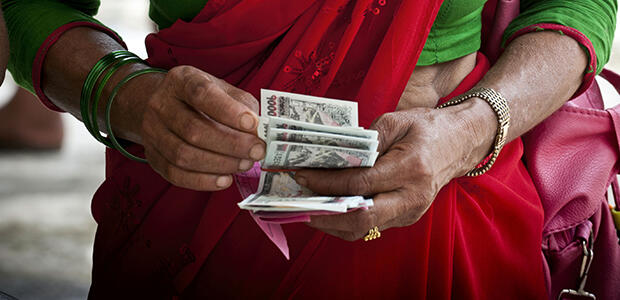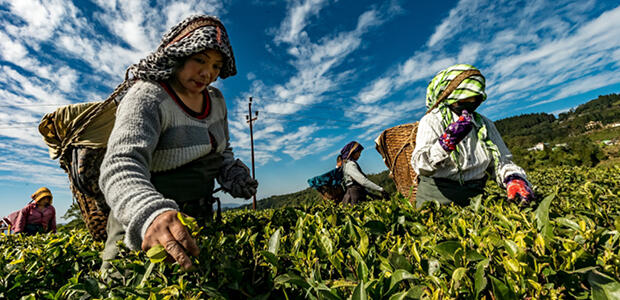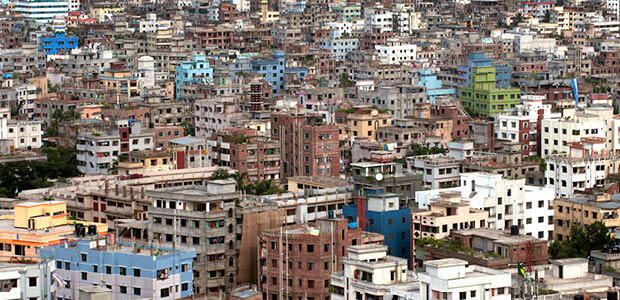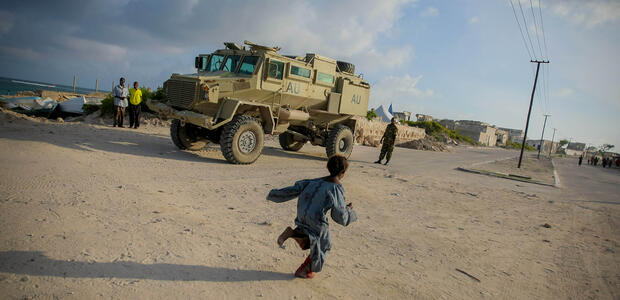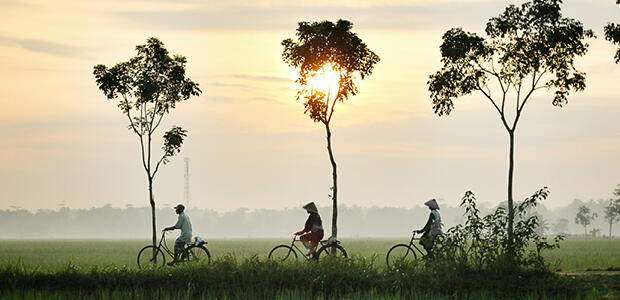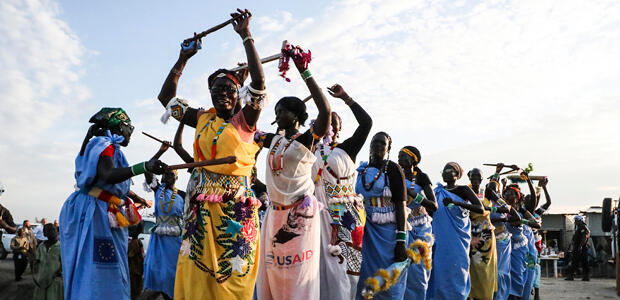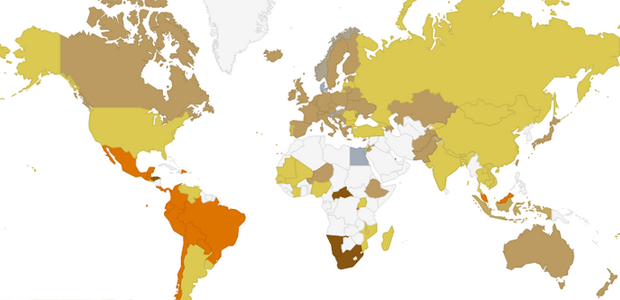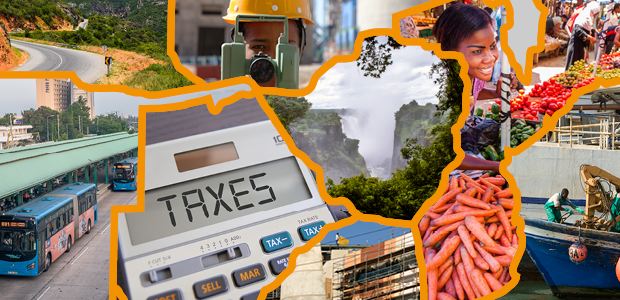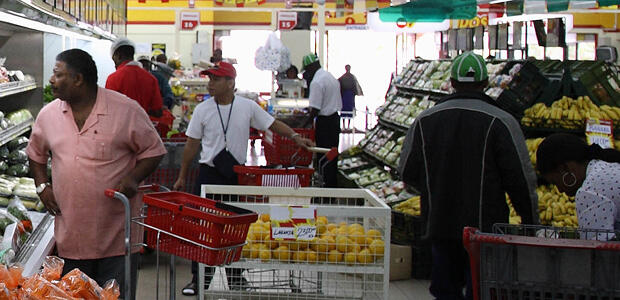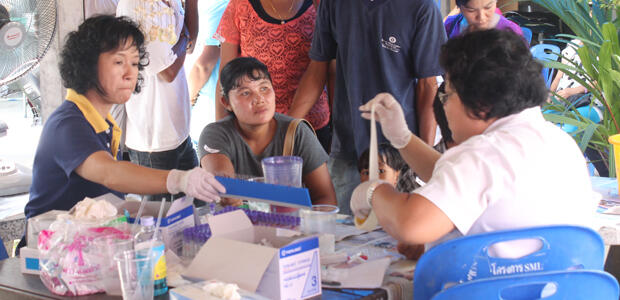Inequality, conflict, and fiscal space – addressing three key development challenges of our times
In 2024, UNU-WIDER launches a new four-year work programme aimed at advancing knowledge on three significant global challenges: reducing persistent inequalities across and within countries, building sustainable peace in conflict-affected countries, and creating the fiscal space for development. The 2024–27 work programme continues the tradition of past ambitious research programmes aimed at addressing pressing international development issues.
These challenges are deeply interconnected. Sustainable and inclusive peace is a critical precondition to ensuring human wellbeing. Expanding fiscal space through stronger tax and benefit systems, increased development finance, and a fairer global system is crucial to finance efforts to reduce inequality and promote economic development. Reducing persistent inequalities can mitigate civil conflict and sustain peace over the long term.
Three cross-cutting themes underpin the 2024–27 programme: climate change, gender equality, and data for development. These themes are embedded across the three core research areas, reflecting their pivotal roles in achieving sustainable and equitable development for future generations.
175 active and previous projects
Filter by...
Transforming economies
Assessment of potential distributional impacts of four development programmes in Benin, Djibouti-Ethiopia, Uganda, and Viet NamHow much do development programmes contribute to the internationally agreed Sustainable Development Goal to reduce inequalities by 2030? This project makes a vital contribution to monitoring progress towards SDG10 specifically, by assessing the...
2018-19
Conference on transforming economies – for better jobsThe creation of productive jobs for both men and women are essential preconditions for the achieving the Sustainable Development Goals (SDGs) on decent work and gender equality. The conference engages current debates around the future of work in the...
2018-19
2018 Nordic conference on development economicsThe conference aims at bringing together Nordic and international scholars for the exchange of ideas and discussion of recent results within theoretical and applied development economics research.
2016-17
Conference on migration and mobility – new frontiers for research and policyMigration and mobility are key facets of our increasingly globalized world, posing challenges but also offering opportunities. For migrants, this may include economic and social mobility, as well as improved physical security and an escape from...
Transformation
Natural resources, structural change, and industrial development in AfricaThis project focuses on three specific areas that impact the pace of structural transformation and job creation in five emerging African natural resources economies: Ghana, Mozambique, Tanzania, Uganda, and Zambia.
2016-17
Conference on responding to crisesThe ‘Responding to crises’ conference aimed to improve knowledge about ongoing, unexpected, and future crises, and to discuss the options available for responses by governments, international agencies, NGOs, civil society and private citizens. The...
2016-17
Conference on human capital and growthHuman capital has been identified not only as a key determinant of growth and poverty alleviation, but as critical for human development. The United Nations Millennium Development Goals (MDGs), and now the Sustainable Development Goals (SDGs), have...
Inclusion
Disadvantaged groups and social mobilityThis project has three main objectives in line with UNU-WIDER’s tradition in the area of inclusion and horizontal inequality: (1) to shed further light on the extent to which inequalities run along ethnic, gender, and other communal lines; (2) to...
2014-15
Conference on inequality - measurement, trends, impacts, and policiesMany low- and middle-income countries are achieving good rates of economic growth, but high inequality remains a priority concern. Some countries meanwhile have low growth, high inequality, and pervasive poverty―often linked to their fragility. There...
Transformation
Structural transformation and inclusive growth in Viet NamThis project responds to the SDG’s call for a strengthening of data collection and capacity-building in Member States. Timely and better disaggregated, country level data aids the search for an evidence-based course to realizing economic...
Inclusion
World inequalityThe purpose of this project is to advance data collection, measurement, and research regarding the development of inequality in the world. A major focus in this research area is the maintenance, updating, and development of the World Income...
Transformation
The growth-employment-poverty nexus in Latin America in the 2000sLatin America in the 2000s witnessed an unprecedented period of growth with poverty and inequality reduction. Latin America also suffered from the economic crises in Europe and the United States from 2007/08 onwards. The questions asked in this...
Transformation
Macro-economic management (M-EM)This project explores how macroeconomics of development is evolving; what the policy priorities are as the global economy undergoes transformation (with more countries moving from low- to middle- income status); the impact of global economic...
Transformation
Development policy and practice: competing paradigms and approachesThis project uses UNU-WIDER’s high level of convening power – its ability to mobilize senior figures in the development policy debate from different paradigms – and its ability to stand aside from the fashions and pressures of the academy, to bring...
Inclusion
Gender and developmentSubstantial progress toward gender equality and women’s empowerment has occurred over the past four decades, but key gaps, both in opportunity and capability, persist between males and females in all countries. This project focuses on generating high...
2012-13
Conference on inclusive growth in Africa - measurement, causes, and consequencesapid and sustained poverty reduction requires ‘inclusive growth’ that allows people to contribute to and benefit from the development process. Africa’s economic performance has improved considerably since the 1980s and early 1990s. Nevertheless, many...
2012-13
Experimental and non-experimental methods to study government performance: contributions and limitsIn recent years, field experiments using randomized trials have gained increasing popularity in the field of development economics. In particular, scholars have argued strongly for their use as the best means of identifying ‘what works’ in foreign...
2012-13
Africa's emerging middle-classSub-Saharan Africa currently is facing a range of demographic and socioeconomic shifts that hold important implications for both the region’s economic and political development. One of these shifts has been the emergence of a sizeable and dynamic...
 Join the network
Join the network